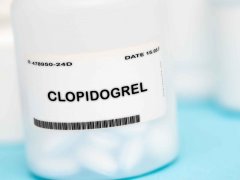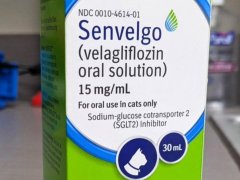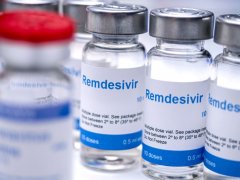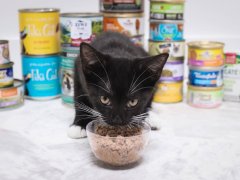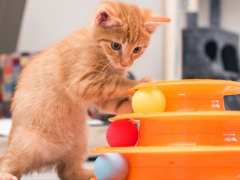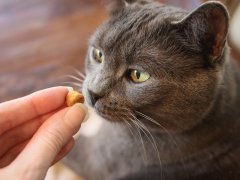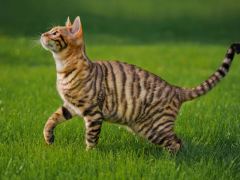
Kirsten McCarthy / Cats.com
Healthy cats are ready and eager to eat a full meal at least twice daily. All animals need their daily nutrients, vitamins, and minerals to thrive. So if a cat won’t eat, their health can decline in a matter of days. Adequate nutrition is especially vital for older cats and those recovering from illness.
Your cat may lose their appetite for many reasons, so it’s important to visit your vet for a diagnosis. While your vet attempts to treat the root cause of inappetence in your cat, you need to get your cat eating again as soon as possible. That’s why your vet may prescribe an appetite stimulant. Appetite stimulants for cats should always be used under the direction of a veterinarian.
Causes of Feline Inappetence
There are a variety of ailments and incidences that may lead to inappetence in cats. Some include:
- Fever (pyrexia)
- Toxins
- Pain
- Fear, anxiety, or stress
- Dental disease
- Illness such as chronic kidney disease, liver disease, digestive disorders (upset stomach), cancer, obstruction of the intestinal tract, and respiratory infections
This is why it’s so important to get a diagnosis from your vet prior to beginning appetite stimulants. Otherwise, the above ailments could go untreated.
Once your vet has made a diagnosis, they will treat the primary cause and may prescribe an appetite stimulant to speed things along. Specific instances include:
- Short-term boosting of the appetite while full results of diagnostic tests are pending
- Encouraging a cat to eat more after an underlying illness has been diagnosed and is being treated
- Encouraging a cat to eat when they have developed an aversion to food after being force-fed—e.g. as a way of treating hepatic lipidosis
There is a theory that when a cat stops eating for a while, they may grow accustomed to it. Appetite stimulants can get them to eat again. This is a difficult theory to prove, but it is an impression that some vets get in practice.
Examples of inappetent cats from my own clinic include:
Coco: A five-year-old cat who walked on a patio treated with weedkiller. She then licked her feet and developed an ulcer on her tongue that made it painful for her to eat. She needed a feeding tube so her mouth could be bypassed. As her tongue healed, she needed an appetite stimulant to encourage her to try eating on her own again.
Maisie: A nineteen-year-old cat who lost interest in her food and was losing weight. She had mild kidney disease but was in very good form generally—bright, active, and playful. She was given an appetite stimulant to help her return to her normal body weight.
Encouraging Your Cat to Eat
You can try a few things in addition to your cat’s appetite stimulant prescription. Possible approaches include:
- Quantity: Offer small amounts of food more often, rather than larger meals less often.
- Hand-feed: Sit close to your cat and offer them small bites by hand.
- Wet food: Offer wet food rather than dry kibble. The stronger odor may encourage your cat to take a taste.
- Fragrant food: Try foods with a strong smell, such as fish and chicken, or use additives like tuna juice or meat broth.
- Warm food: Warm up wet food so it produces a stronger odor. A nice warm meal may also appeal to a cat who’s not feeling well.
- Wide dishes: A wider, flatter dish may be more appealing to eat from than a deep bowl.
- Quiet and calm: Feed your cat on their own, away from other pets or kids who may distract them.
- Keep their nose clear: If your cat has a respiratory infection, they may have a build-up of secretions around the nostrils. Gently clean their nose so they can smell their food and breathe more easily while eating.[1]
Medications To Stimulate the Appetite
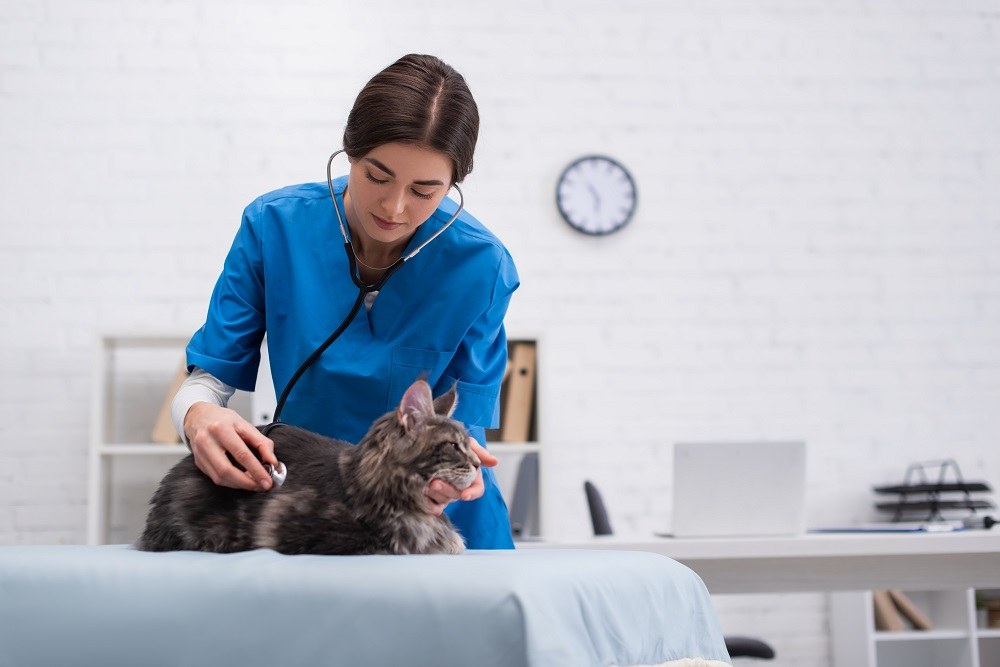
Medication to stimulate appetite in cats should always be discussed with a veterinarian LightField Studios / Shutterstock
Several different types of drugs may be used to boost your cat’s appetite. They should all be used under the close supervision of your vet because there are always potential side effects. The pharmacokinetics of these drugs can be complex and professional monitoring is important.
1. Mirtazapine
Developed as an antidepressant for humans, mirtazapine has been clinically proven to increase appetite in both humans and cats.
- Presentation: oral tablets (usually 7.5 mg)
Example dosage: 1/4 tablet of 7.5 mg tablet (1.88 mg) once daily, or every two days. - The drug is also available as a transdermal gel (Mirataz)
Dosage: 2 mg transdermally (onto the skin), to be applied once daily, with owners wearing gloves when applying
Possible side effects of mirtazapine include sleepiness, increased vocalization, rapid heart rate, hyperactivity, dilated pupils, and increased affection towards cat carers. Overdose can lead to agitation, staggering (ataxia), trembling and drooling (hypersalivation), which include signs suggestive of so-called serotonin syndrome. If your cat is already taking medication for anxiety or behavioral issues, like fluoxetine, care should be taken, as both drugs affect serotonin in the brain. Additionally, if your cat is on tramadol for pain relief, negative drug interactions are possible.[2]
2. Capromorelin (Elura)
A ghrelin agonist, capromorelin stimulates the sensation of hunger both centrally (in the brain) and peripherally (in the digestive tract). Ghrelin is a hormone that is secreted from gastric cells in a fasting animal. It increases the release of other hormones that have a strong role in healthy cats in maintaining a good appetite.
- Dosage: Formulated as a liquid to be given by mouth once daily
The most common side effects include vomiting, drooling (hypersalivation), and dullness.
3. Cyproheptadine
This is an antihistamine and serotonin antagonist drug. It can stimulate the appetite in cats but remains off-label.
- Presentation: 4mg tablets
- Dosage: 1–2 mg once or twice daily
Possible side effects include a dry mouth and mild sedation. This drug should not be given at the same time as mirtazapine since both can cause sedation.
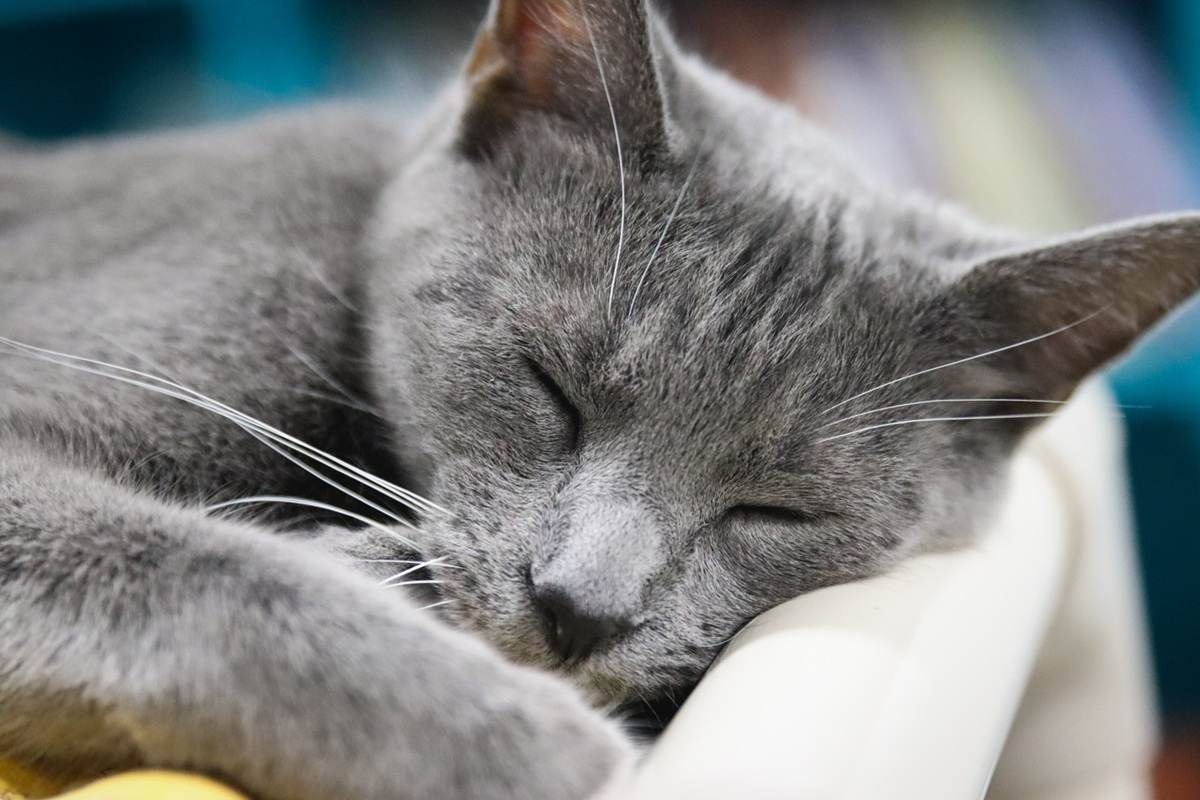
Kirsten McCarthy / Cats.com
4. Oxazepam
This stimulant is a benzodiazepine that acts on the brain to make food seem more appealing to cats. Other benzodiazepines have also been used (e.g., diazepam), but oxazepam is widely believed to be the most effective in this group. It is most effective when used for a hospitalized cat that is not eating due to stress or as a one-off short-term treatment for an inappetent cat.
- Dosage: 2 mg per cat q12–24h
The main side effect is sedation, which means that this is not a helpful drug for long-term use. This sedation effect means it should not be combined with other appetite stimulants that can cause drowsiness, such as mirtazapine.
5. Dronabinol (Marinol)
A CBD/ THC derivative, dronabinol is a synthetic version of the THC found naturally in marijuana (Cannabis sativa). The drug acts at cannabinoid receptors in the brain, causing psychotropic and anti-nausea effects as well as stimulating the appetite. This is a controlled drug in most jurisdictions, which limits its use. It has not yet been widely used in cats.[3]
6. Glucocorticoids
Veterinarians sometimes suggest steroid drugs, which tend to stimulate the appetite as a side effect. However, there can be negative side effects, such as immunosuppression, so they have limited use as appetite stimulants.
7. Anabolic steroids
These promote anabolism (the growth of new tissues) and were traditionally used to boost cats’ appetite. However, possible adverse side effects mean that this medication is used less commonly than in the past.
Drug Dosing Disclaimer: We are only able to provide doses for medications that are FDA approved for use in cats and only as the label guidelines dictate. For medications that are used off-label we can only provide guidelines and safety information for use. Safe and appropriate dosing for off-label medications can only be determined by a primary care veterinarian.
We encourage you to work with your veterinarian to determine if a particular medication is appropriate for your cat. Changing or adjusting a dose for your cat on your own without consulting with a veterinarian can carry risk. We do not encourage use of medications prescribed for human use in pets without first consulting with a primary care veterinarian.
Frequently Asked Questions
What is the best appetite stimulant for cats?
There are a variety of drugs used for appetite stimulation in cats. The most commonly used is mirtazapine, but the choice will be made by your veterinarian based on various factors including your cat’s medical history, presentation, and other symptoms.
Can I give my cat a human appetite stimulant?
It’s dangerous to give human medication to cats unless this is under direct veterinary supervision with specific instructions. The only safe option is to get your cat checked over by your vet, and then follow their advice on medication if they agree that an appetite stimulant is a good idea.
-
Pekel, A. Y., Mülazımoğlu, S. B., & Acar, N. (2020). Taste preferences and diet palatability in cats. Journal of Applied Animal Research, 48(1), 281–292.
-
Quimby, J. M., Benson, K. K., Summers, S., Saffire, A., Herndon, A. K., Bai, S., & Gustafson, D. L. (2019). Assessment of compounded transdermal mirtazapine as an appetite stimulant in cats with chronic kidney disease. Journal of Feline Medicine and Surgery, 22(4), 376–383.
-
Miranda-Cortés, A., Mota-Rojas, D., Crosignani-Outeda, N., Casas-Alvarado, A., Martı́nez-Burnes, J., Olmos-Hernández, A., Mora-Medina, P., Verduzco-Mendoza, A., & Hernández-Ávalos, I. (2023). The role of cannabinoids in pain modulation in companion animals. Frontiers in Veterinary Science, 9.
